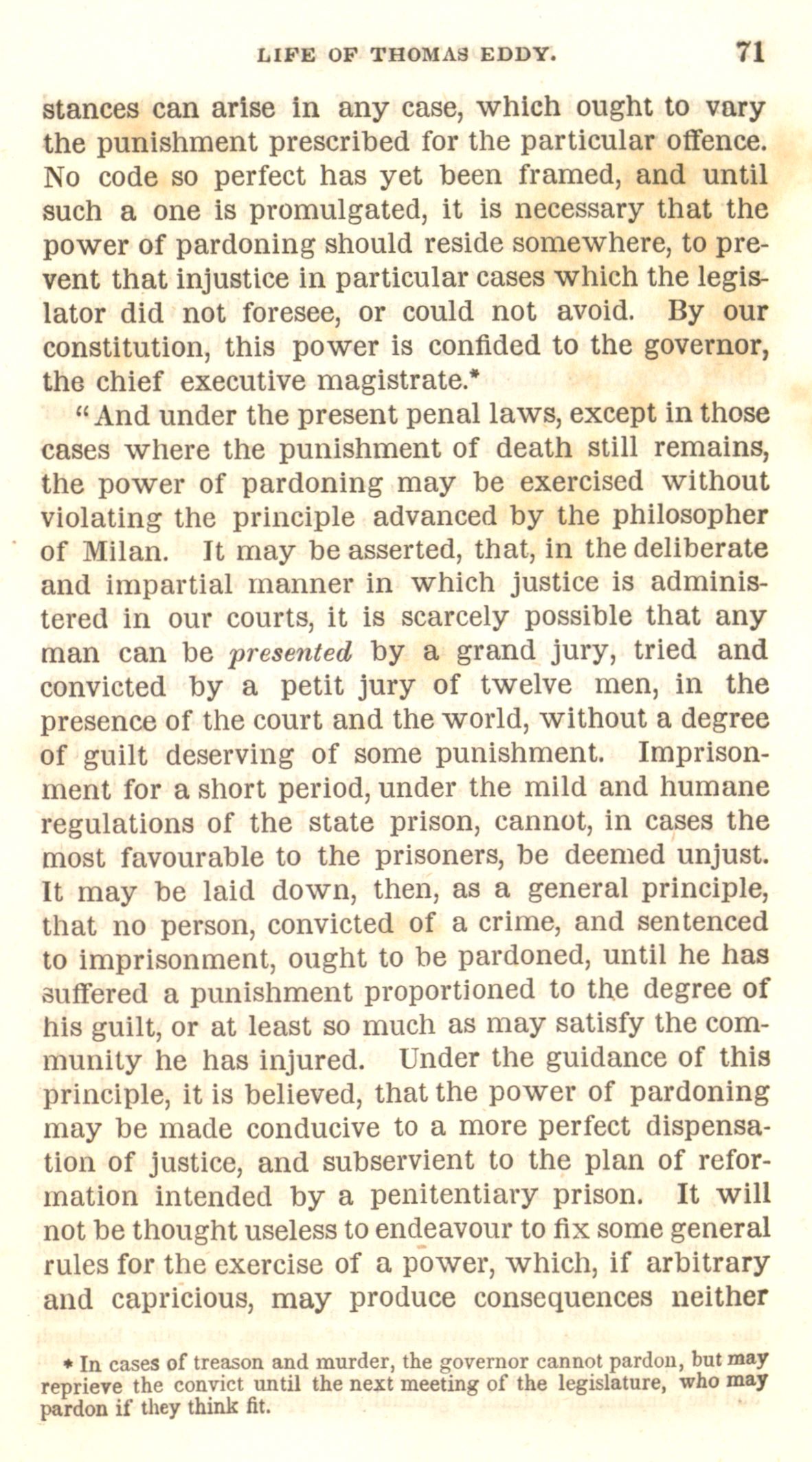stances can arise in any case, which ought to
vary
the punishment prescribed for the particular offence.
No
code so perfect has yet been framed, and until
such a one is
promulgated, it is necessary that the
power of pardoning should
reside somewhere, to pre-
vent that injustice in particular cases
which the legis-
lator did not foresee, or could not avoid. By
our
constitution, this power is confided to the governor,
the
chief executive magistrate.*
* In cases of
treason and murder, the governor cannot pardon, but may
reprieve the convict until the next meeting of the legislature, who
may
pardon if they think fit.
And under the present penal laws, except in those
cases where the
punishment of death still remains,
the power of pardoning may be
exercised without
violating the principle advanced by the
philosopher
of Milan. It may be asserted, that, in the
deliberate
and impartial manner in which justice is
adminis-
tered in our courts, it is scarcely possible that any
man can be presented, by a grand jury, tried
and
convicted by a petit jury of twelve men, in the
presence
of the court and the world, without a degree
of guilt deserving of
some punishment. Imprison-
ment for a short period, under the mild
and humane
regulations of the state prison, cannot, in cases
the
most favourable to the prisoners, be deemed unjust.
It may
be laid down, then, as a general principle,
that no person,
convicted of a crime, and sentenced
to imprisonment, ought to be
pardoned, until he has
suffered a punishment proportioned to the
degree of
his guilt, or at least so much as may satisfy the
com-
munity he has injured. Under the guidance of this
principle, it is believed, that the power of pardoning
may be made
conducive to a more perfect dispensa-
tion of justice, and
subservient to the plan of refor-
mation intended by a penitentiary
prison. It will
not be thought useless to endeavour to fix some
general
rules for the exercise of a power, which, if arbitrary
and capricious, may produce consequences neither

